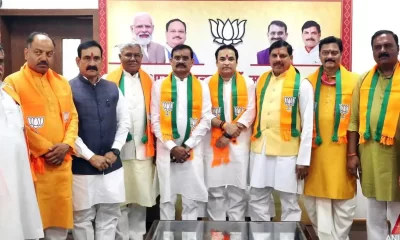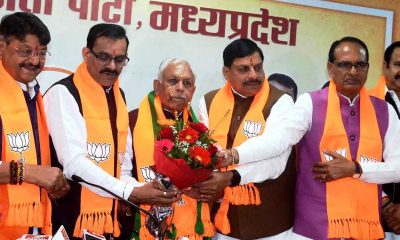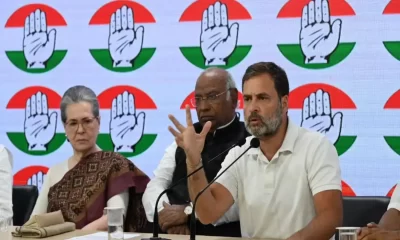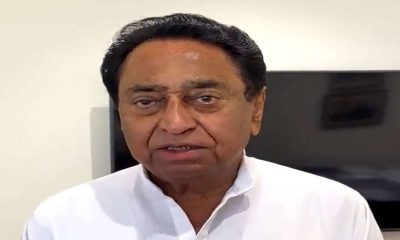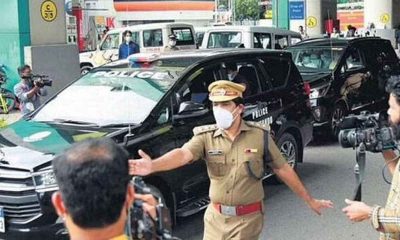India News
Madhushala mein Gaushala: Uma Bharati threatens to convert liquor stores into cow shelters in Madhya Pradesh
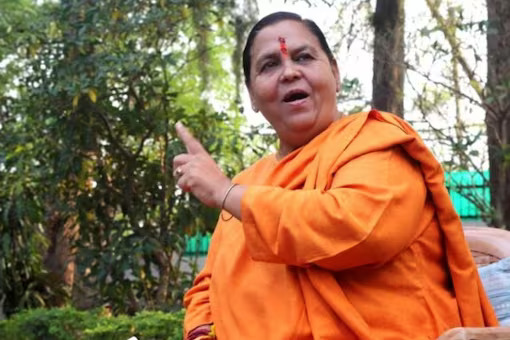
Uma Bharati, Tuesday, announced a programme to convert liquor stores into cow shelters, “Madhushala Me Gaushala”, as she claimed that crimes against women in BJP-ruled Madhya Pradesh are the result of liquor consumption.
The BJP leader has put forward the demand for a “controlled” liquor policy in the state and pushed for converting liquor outlets who are in violation of rules, into cow shelters.
The former Madhya Pradesh Chief minister had on January 29 reached a temple near a liquor store in Ayodhya Nagar trisection of the state capital and announced she will stay there till January 31, awaiting announcement of a new liquor policy by the government.
Bharati ended her four-day stay at the temple on Tuesday as the state government has delayed its liquor policy announcement.
Uma Bharati told the media that she had located an illegal liquor store near the Ram Raja Sarkar temple at Orchha in Niwari district and she will start converting these illegal liquor stores into cow stores.
Bharati said she has asked people to round up 11 cows to up inside the allegedly illegal liquor shop she found in Orchha. The former Union Minister dared anyone to try and stop her, saying that the cows will be fed and taken care of at the liquor store.
In an apparent jibe at her own party, Bharati lamented that a liquor shop has been allowed to operated near a venerated temple even though governments are being formed in Lord Ram’s name.
Bharati claimed that according to a report Madhya Pradesh was leading in crime against women which is directly linked to increased liquor consumption in the BJP-ruled state.
Bharati, however, showered praises on Prime Minister Narendra Modi, saying that the BJP was only winning in polls due to his “magic.”
She maintained that forming a government is not an achievement rather developing a healthy society that ensures protection of women and the future of children should be the goal of any democratic regime.
Read Also: Budget 2023 will meet expectations of every section, says MoS Finance Pankaj Chaudhary
The veteran BJP leader accused some of her own party members of trolling her campaign against liquor consumption and linking it to her political ambitions.
Bharati said she has held the post of CM, served as a union minister and now only the position of Prime Minister remains, but only a select few can occupy that top office. She alleged a section of the BJP is spreading lies about her having aspirations of becoming the Prime Minister.
Bharati also threatened that she will start now revealing what the ministers, MPs and MLAs talk to her during as such people are continuously meeting her.
She revealed that Chief Minister Shivraj Singh Chouhan has agreed to her suggestions and promised to introduce a controlled liquor policy in the state.
Addressing a gathering earlier, Bharati said that women in the state wanted a controlled liquor policy not schemes like the recently launched Ladli Bahina Yojana (for women from financially weaker section).
Bharati said women roam freely at night in Gujarat like “lioness of Gir” and eat ‘bhelpuri’ at midnight because prohibition is in force in the adjoining state.
Odisha government transfers SP, SDPO after health minister Naba Kishore Das killing
Budget 2023: Higher spending on education, healthcare; lower fiscal deficit likely
Union Budget 2023: Where and how to watch Finance Minister Nirmala Sitharaman’s speech LIVE?
India News
AAP leader Saurabh Bharadwaj says a conspiracy is underway for slow death of Arvind Kejriwal
Saurabh Bharadwaj also slammed the Tihar administration, BJP, Centre and Delhi LG and held them responsible for denying insulin to Kejriwal and said the Delhi Chief Minister has been suffering from Type-2 diabetes for the last 20-22 years.
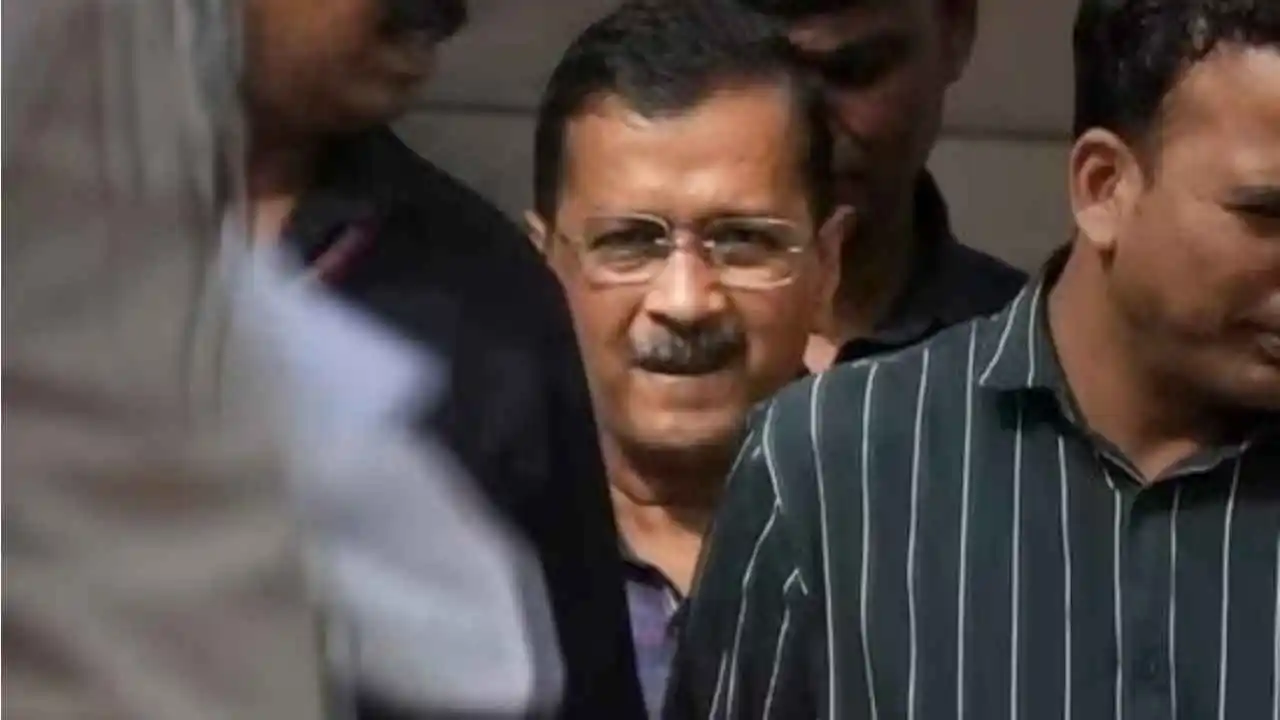
The Aam Aadmi Party on Saturday said that Delhi Chief Minister Arvind Kejriwal is being pushed towards a slow death inside Tihar jail as he is being denied insulin and consultations with his doctor. AAP spokesperson Saurabh Bharadwaj told the media that Arvind Kejriwal, who is suffering from Type-2 diabetes, has been asking for insulin and a video conferencing with his family doctor as the jail administration is not allowing him to do so.
Bharadwaj said he wants to say with full responsibility that a conspiracy is underway for the slow death of Kejriwal. He said his claims were on the basis of blood sugar readings of the Delhi Chief Minister in jail. He also slammed the Tihar administration, BJP, Centre and Delhi LG and held them responsible for denying insulin to Kejriwal and said the Delhi Chief Minister has been suffering from Type-2 diabetes for the last 20-22 years.
On Friday, the Delhi chief minister’s council Senior advocate Abhishek Manu Singhvi said Kejriwal has not been administered insulin to control his sugar levels since his arrest, and termed it alarming and shocking. The Enforcement Directorate had on Thursday claimed before the court that Kejriwal has been taking high sugar intake by consuming foods like mangoes and sweets every day, inspite of the fact that he was suffering from Type-2 diabetes, to create grounds for medical bail.
Kejriwal refuted the claims of the Enforcement Directorate by asserting before a court that the food he consumed was in accordance with the diet chart prepared by his doctor. Arvind Kejriwal confirmed that he only uses sugar free in his tea.
Bharadwaj further added that overall, it was a conspiracy to give a slow death to Arvind Kejriwal so that his multiple organs get damaged and when he comes out of jail after 2-4 months he goes for the treatment of heart, kidney and other organs.
2024 Lok Sabha Elections
Rahul Gandhi says BJP will not get more than 150 seats in Lok Sabha elections
Congress leader Rahul Gandhi said these BJP people are saying that they will secure this many or that many seats and but he wanted to make it clear that BJP will not get more than 150 seats.
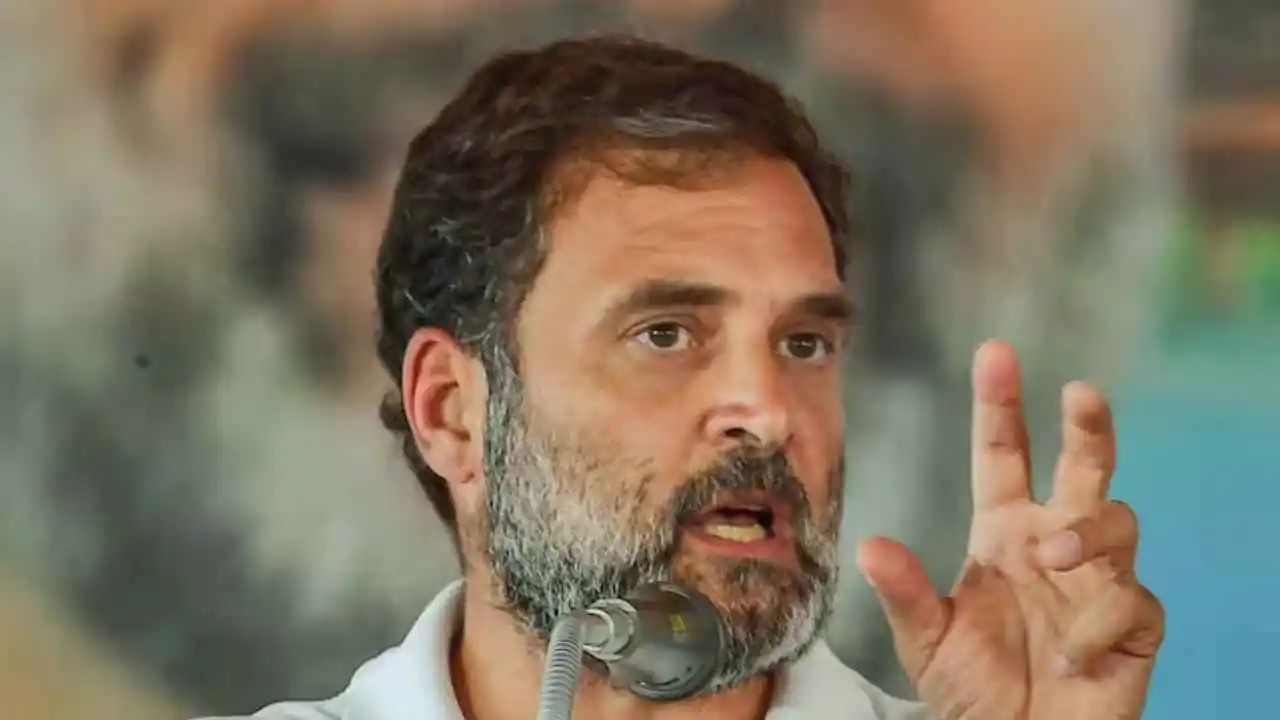
With completion of the first phase of the Lok Sabha elections yesterday, the stage is set for the 2nd phase of the Lok Sabha elections, which has lead the political parties to intensify and accelerate campaigning. Congress leader Rahul Gandhi too, with his eyes set on the 2nd phase was addressing a public rally at Bihar’s Bhagalpur on Saturday.
Addressing the rally, Congress leader Rahul Gandhi and said these BJP people are saying that they will secure this many or that many seats and but he wanted to make it clear that BJP will not get more than 150 seats.
Rahul Gandhi expressed his confidence that the I.N.D.I.A. Bloc will emerge victorious in the Lok Sabha elections. He also stressed on the party’s vision for INDIA once elected to power. Rahul Gandhi said, As soon as the INDIA alliance government comes, they will end the Agniveer scheme. He said India does not need two types of martyrs and added that everyone should get pension.
Gandhi further added that they will change GST and there will be one tax, minimum tax. He also talked about doubling the salary of Asha and Anganwadi workers. Gandhi said they are giving 2 guarantees to the farmers. The Congress party is going to waive off the farmers’ debts, and secondly, they are going to provide a guaranteed minimum support price to the farmers of India.
Congress leader even promised that his government would provide all diploma holders and graduates in India with the right to an apprenticeship. During the second phase of the Lok Sabha elections which are scheduled to be held on April 26, 4 constituencies in Bihar, including, Kishanganj, Bhagalpur, and Purnia ,Katihar will go for elections.
2024 Lok Sabha Elections
RJD leader Tejashwi Yadav says BJP’s 400 paar film has become a super flop on the first day itself
Tejashwi Yadav said the INDIA Bloc had held block wise meetings and the feedback that has come is very good that the BJP’s 400 paar film has flopped on day 1 of the Lok Sabha elections. He said the people of Bihar are aware and will teach BJP a lesson.
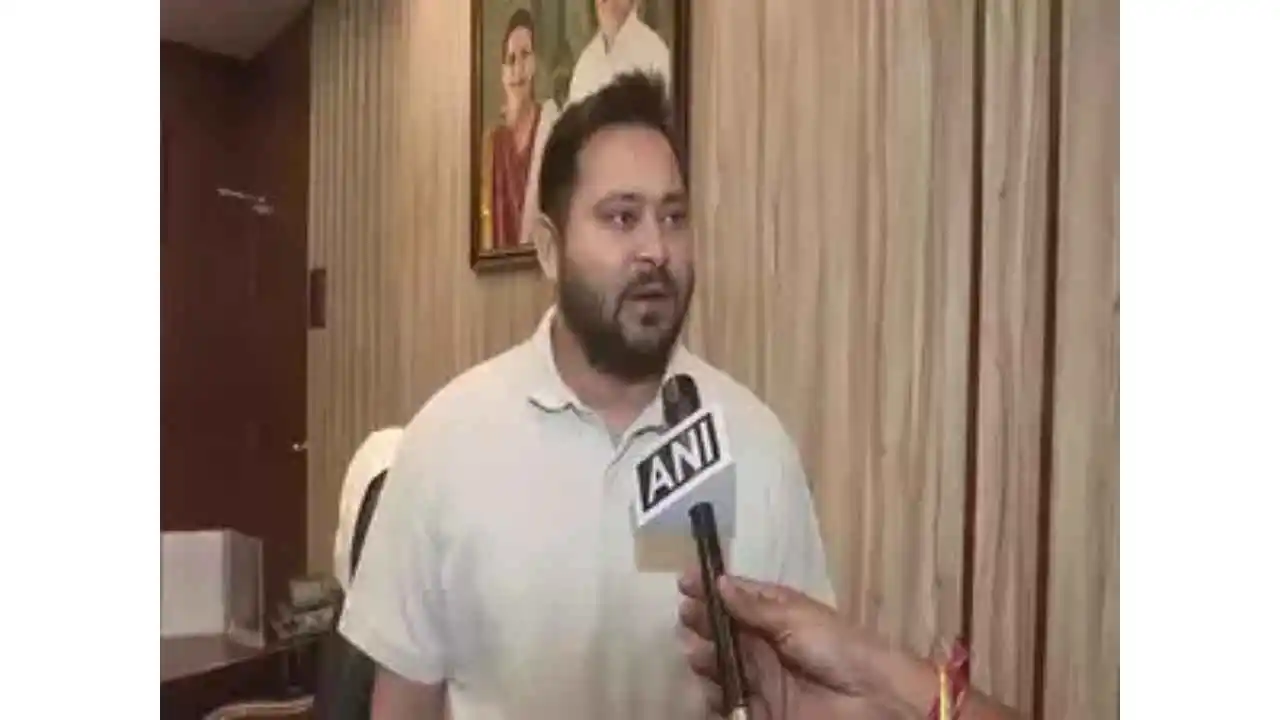
After the first phase of the Lok Sabha election got completed, Rashtriya Janata Dal (RJD) leader Tejashwi Yadav on Saturday took a dig at the Bharatiya Janata Party and said that the BJP’s 400 paar film has become a super flop on the first day itself. The RJD leader told that the media that there is no competition in the first phase of the elections as Bihar will give shocking results this time.
Yadav added that the Mahagathbandhan is winning all 4 seats in the first phase. He said the INDIA Bloc had held block wise meetings and the feedback that has come is very good that the BJP’s 400 paar film has flopped on day 1 of the Lok Sabha elections. He said the people of Bihar are aware and will teach BJP a lesson.
Tejashwi Yadav said there is no competition in the first phase. He said the people of Bihar will give shocking results this time. He added the BJP government has not done anything for the people of Bihar. He said the promises made by Modi ji in 2014 and 2019 were not fulfilled. Yadav added the public is tired of BJP’s statements and false promises. He said the opposition has promised that they will give a special package to Bihar along with special status.
Tejashwi Yadav said today the rally is with Rahul Gandhi ji in Bhagalpur. The entire INDIA Bloc and the Mahagathbandhan are working together. The RJD leader pointed out that unemployment is the biggest issue in Bihar. He said other important issues being faced by the people of Bihar are poverty, inflation, investment in the state. He said Migration and floods are also issues which need to be looked at. He added the people of BJP are very worried. He said the people of BJP say that they will abolish the Constitution. He said those who destroy the Constitution will themselves be destroyed.
-
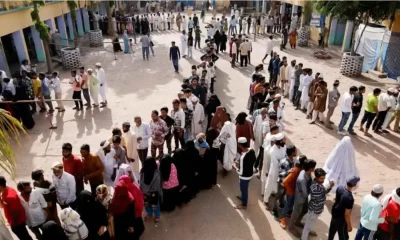
 2024 Lok Sabha Elections24 hours ago
2024 Lok Sabha Elections24 hours agoLok Sabha Elections: Voter turnout 62.02% in Tamil Nadu till 5pm
-

 Cricket news8 hours ago
Cricket news8 hours agoIPL 2024: Lucknow Super Giants beat Chennai Super Kings by 8 wickets
-
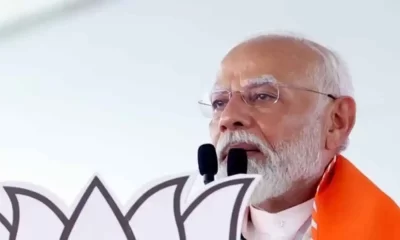
 2024 Lok Sabha Elections7 hours ago
2024 Lok Sabha Elections7 hours agoPrime Minister Narendra Modi takes dig at Rahul Gandhi, says like Amethi, Congress will lose its ground from Wayanad also
-
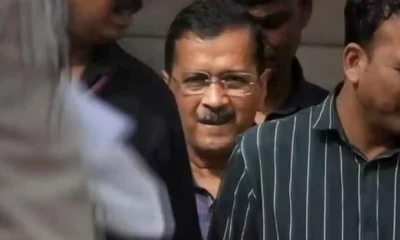
 India News3 hours ago
India News3 hours agoAAP leader Saurabh Bharadwaj says a conspiracy is underway for slow death of Arvind Kejriwal
-
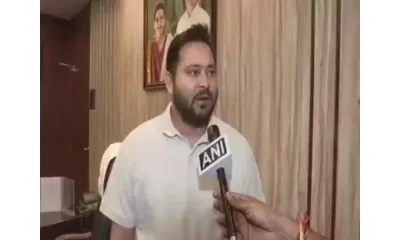
 2024 Lok Sabha Elections6 hours ago
2024 Lok Sabha Elections6 hours agoRJD leader Tejashwi Yadav says BJP’s 400 paar film has become a super flop on the first day itself
-
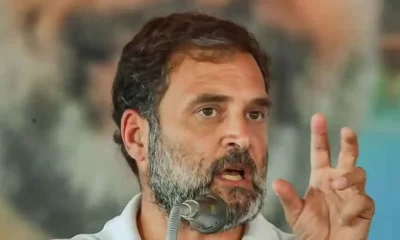
 2024 Lok Sabha Elections4 hours ago
2024 Lok Sabha Elections4 hours agoRahul Gandhi says BJP will not get more than 150 seats in Lok Sabha elections
-

 Entertainment1 hour ago
Entertainment1 hour agoBollywood star Ajay Devgn shares emotional birthday post on his daughter Nysa Devgan’s 21st birthday

